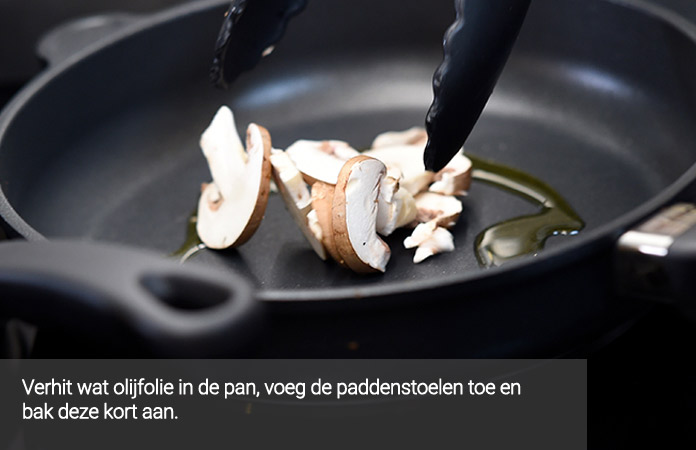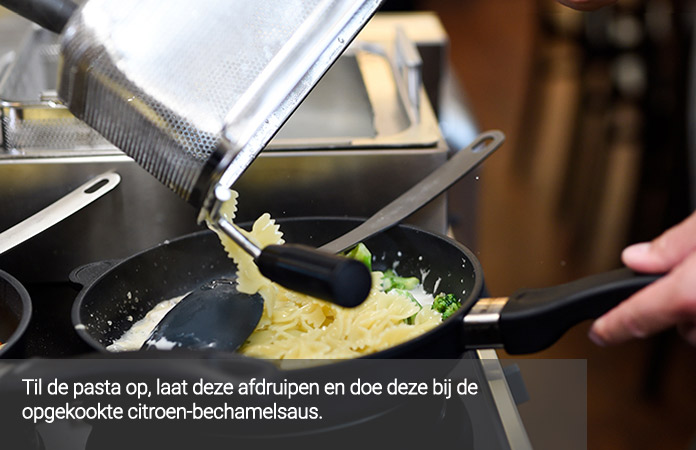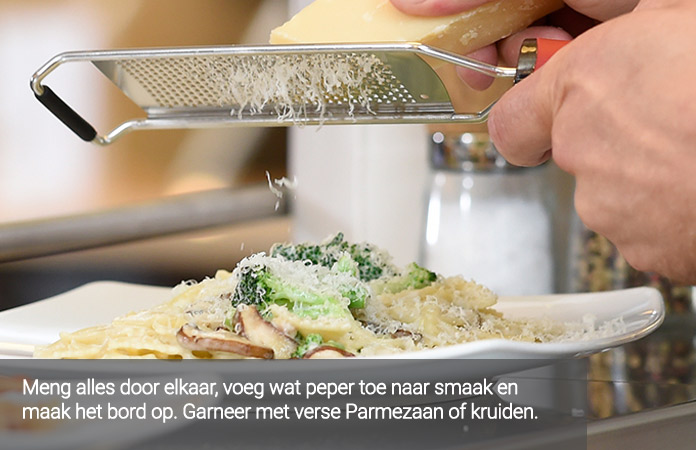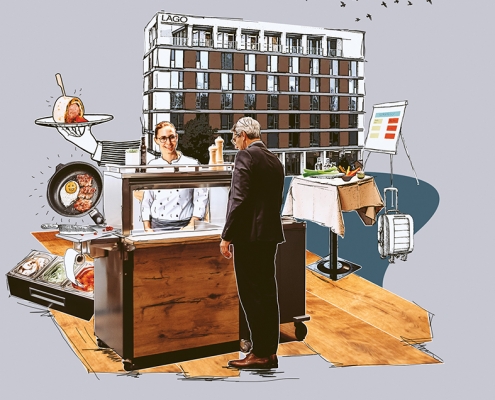RECEPT
PASTA AL LIMONE
20 Feb 2020
ALEXANDER SCHARMBERG
Showkok en frontcooking-coach
“Bij dit gerecht kan ik veel voorbereiden en de bereiding gaat snel – daarmee is het zeer geschikt voor frontcooking.”
INGREDIËNTEN PER PORTIE
120 ml voorbereide citroen-bechamelsaus
80 g broccoli
50 g paddenstoelen (bv. kastanjechampignons)
100 g pasta (bv. farfalle, penne)
Parmezaanse kaas
Kruiden om te garneren
Peper
KOOKGEREI
BEREIDINGSTIJD
2:30 min
MOEILIJKHEIDSGRAAD
eenvoudig
VOORBEREIDING
- Gaar de pasta ca. 50% voor en laat deze afdruipen
- Blancheer de broccoli en schrik deze af
- Snijd de paddenstoelen in plakjes
BEREIDING















